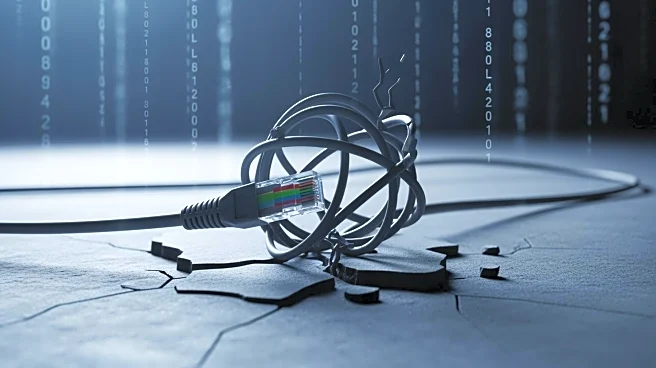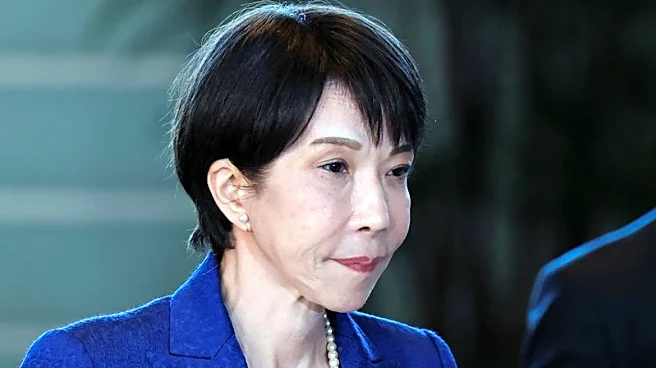What's Happening?
In Russia, widespread cellphone internet shutdowns have been implemented by the government, ostensibly to prevent Ukrainian drone attacks. These outages have affected daily life, disrupting services such
as credit card transactions, ATM connectivity, and messaging apps. The government has promoted a state-controlled app, MAX, which critics view as a surveillance tool. Despite broadband and Wi-Fi remaining unaffected, many Russians have reported significant disruptions. The outages began in May and have continued, with 57 regions experiencing daily disruptions. Authorities claim these measures are necessary, but analysts argue they have not effectively reduced drone attacks. During outages, only government-approved websites and services are accessible, leading to concerns about information access and freedom.
Why It's Important?
The internet shutdowns in Russia highlight the government's increasing control over digital communications, impacting citizens' access to information and services. This has broader implications for civil liberties and the ability of individuals to communicate freely. The restrictions on popular messaging apps like WhatsApp and Telegram, coupled with the promotion of the MAX app, suggest a move towards greater surveillance and control. These measures could affect economic activities, as many transactions and logistics rely on internet connectivity. The situation underscores the tension between security measures and personal freedoms, with potential long-term effects on Russian society and its interaction with global digital networks.
What's Next?
The Russian government may continue to expand its control over internet access, potentially increasing the number of services on 'white lists' and further promoting the MAX app. There could be more restrictions on VPNs and other tools that allow access to blocked content. Citizens may increasingly seek alternative methods to bypass these controls, leading to a cat-and-mouse dynamic between users and authorities. The international community may respond with criticism or sanctions, depending on the perceived impact on human rights. The effectiveness of these measures in preventing drone attacks will likely be scrutinized, influencing future policy decisions.
Beyond the Headlines
The internet control measures in Russia raise ethical questions about the balance between national security and individual freedoms. The reliance on state-controlled apps for communication could lead to increased surveillance and data collection, affecting privacy rights. The situation may also influence other countries facing similar security challenges, potentially leading to a global debate on internet governance and digital rights. The long-term impact on Russian society could include reduced access to global information and increased isolation, affecting cultural and economic exchanges.










